Related Research Articles

James Henry Leigh Hunt, best known as Leigh Hunt, was an English critic, essayist and poet.
Nathaniel Pitcher was an American lawyer and politician who served as the eighth governor of New York from February 11 to December 31, 1828.
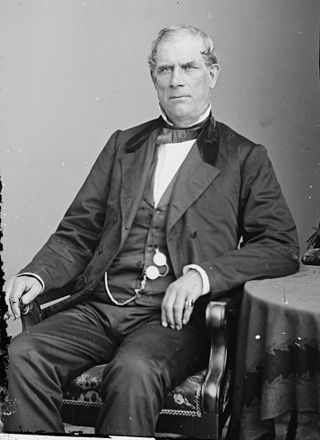
Edward Thurlow Weed was a printer, New York newspaper publisher, and Whig and Republican politician. He was the principal political advisor to prominent New York politician William H. Seward and was instrumental in the presidential nominations of William Henry Harrison (1840), Zachary Taylor (1848), and John C. Frémont (1856).

Alaric Alexander Watts was a British poet and journalist, born in London. His life was dedicated to newspaper creation and editing, and he was seen as a conservative writer. It led him to bankruptcy, when a pension was awarded to him by a friend, Lord Aberdeen.

Nathan Bangs was an American Christian theologian in the Methodist tradition and influential leader in the Methodist Episcopal Church prior to the 1860s.
George Moses Horton, was an African-American poet from North Carolina who was enslaved until Union troops, carrying the Emancipation Proclamation, reached North Carolina (1865). Horton is the first African-American author to be published in the United States. He is author of the first book of literature published in North Carolina and was known as the "Slave Poet".
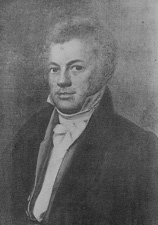
Charles Edward Dudley was an American businessman and politician. A member of Martin Van Buren's Albany Regency, Dudley served as mayor of Albany, New York, a member of the New York State Senate, and a U.S. Senator.
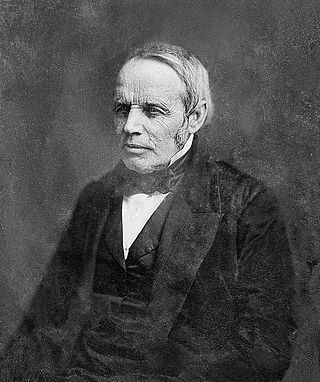
Azariah Cutting Flagg was an American newspaper printer and editor, and politician.

Henry Walter Livingston was a United States Representative from the state of New York.
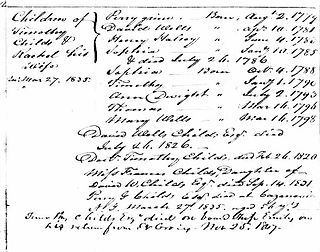
Timothy Childs Jr. was a U.S. Representative from New York. He represented Monroe County for eight non-consecutive terms in Congress between 1829 and 1843.

George Dennison Prentice was an American newspaper editor, writer and poet who built the Louisville Journal into a major newspaper in Louisville, Kentucky, and the Ohio River Valley, in part by the virulence and satire in its editorials, which some blamed for a bloody election day riot in 1855. A slaveholder, Prentice initially supported Unionist candidate John Bell in the 1860 U.S. presidential election, and after the American Civil War, he urged Kentucky to remain neutral. Both of his sons joined the Confederate States Army, one dying in 1862, and Prentice's editorials lampooned Kentucky's military governor, Union General Stephen G. Burbridge. Prentice later opposed Congressional Reconstruction. He wrote a biography of Henry Clay published in 1831, an 1836 poem published in the McGuffey Readers, and a collection of his humorous essays was published in 1859 and revised after his death.

Mary Elizabeth Hewitt was an American poet and editor who flourished in the 1840s and 1850s. She published: Memorial of F. S. Osgood; Songs of Our Lord; Heroines of History; and Poems Sacred, Passionate, and Legendary.

David Lester Richardson was an officer of the East India Company, who throughout his life followed literary pursuits as a poet and periodical writer, and as editor and proprietor of literary journals. A skilled linguist, he was in later life an educator, serving as professor of English at Hindu College, where he inspired the Bengali poet Michael Madhusudan Dutta.
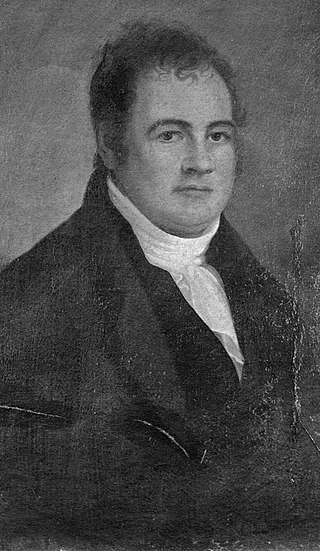
Solomon Southwick was an American newspaper publisher and political figure who was a principal organizer of the Anti-Masonic Party.
Anna Maria Wells was a 19th-century poet and a writer of children’s literature. The poet and editor Sarah Josepha Hale wrote that Wells, as a child, had a "passionate love of reading and music," and began to write verses when very young. In 1830, Wells published Poems and Juvenile Sketches, a compilation of her early work, after which she contributed occasionally to various periodicals. Hale opined that "the predominant characteristics of [Wells'] poetry were tenderness of feeling, and simplicity and perspicuity of language." Wells' contemporaries, in addition to Sarah Hale, were Caroline Howard Gilman, Hannah Flagg Gould, Eliza Leslie, Catharine Maria Sedgwick, and Lydia Huntley Sigourney

Emily Thornton Charles was a 19th-century American poet, journalist, editor, and newspaper founder. Married in 1861 and widowed in 1869, she was left with two children to support. In 1874, she began a successful career as a journalist, at first as correspondent and reporter for various newspapers, and later as editor. She was associate editor of the book entitled Eminent men of Indiana. In 1881, she became managing editor of the Washington World and was the founder, manager and editor of the National Veteran at Washington, D.C. She was actively identified with the National woman suffrage convention, the Woman's National Press Association, and the Society of American Authors. Her published writings, under the pseudonym "Emily Hawthorne," include Hawthorne Blossoms (1876); and Lyrical Poems, Songs, Pastorals, War Poems, and Madrigals (1886). Charles favored woman's suffrage. She died in 1895.
Joseph Hall Jackson was an American lawyer and politician from New York.
Mary Elizabeth (Aikin) Brooks (1803–1895) was an American poet who sometimes published under the pen name "Norna."
Constantina Elizabeth Brooks (1835-1910) was an American poet and translator.
References
- 1 2 3 "James G. Brooks". New-York Mirror and Ladies' Literary Gazette. Open Court Publishing Co. 5 (29). 1828-01-26.
- 1 2 3 4 5 6 7 Cleveland, Charles Dexter (1859). A compendium of American literature, chronologically arranged; with biographical sketches of the authors. Harvard University. Philadelphia, J.A. Bancroft. pp. 488–490.
- ↑ May, Caroline, ed. (1854). The American Female Poets: With Biographical and Critical Notices. Philadelphia: Lindsay & Blariston, p. 281.
- ↑ "Married." Commercial Advertiser (New York), January 24, 1829.
- ↑ Miss Brooks' Sudden Death Last Evening. The Argus (Albany, NY), December 7, 1910.
- ↑ The Register (Onondaga Hollow, NY), May 19, 1822.
- ↑ "Death of 'Florio'." Liberator (Boston) March 5, 1841.